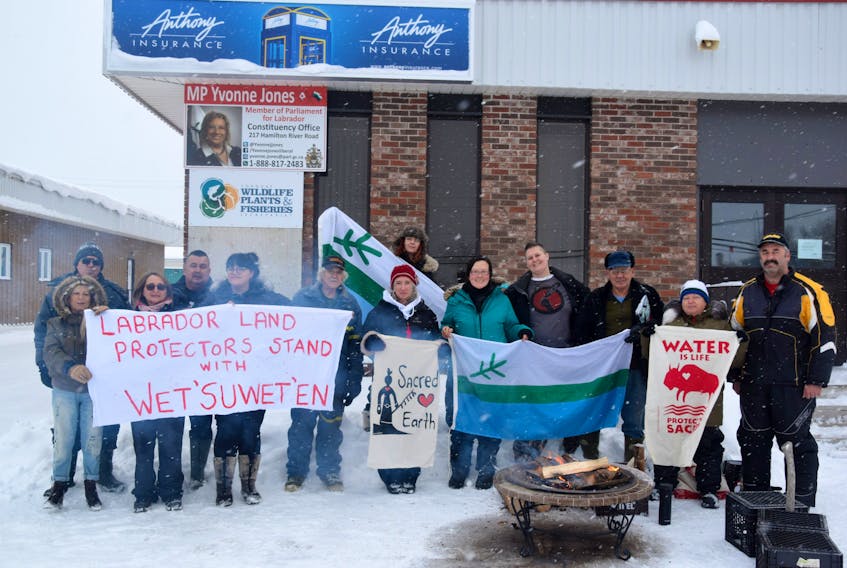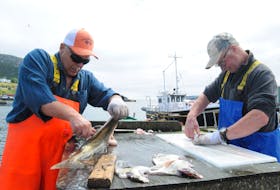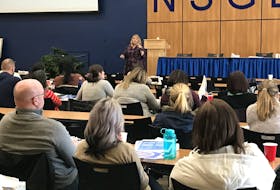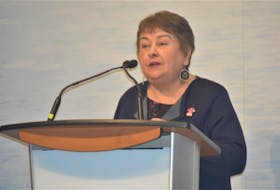People gathered across Canada on Jan. 12 to show their support for 14 Indigenous activists in British Columbia.
Members of the Labrador Land Protectors (LLP) gathered in front of Labrador MP Yvonne Jones’ office in Happy Valley-Goose Bay to show their support.
They, and other groups across the country, have been peacefully protesting the arrest of 14 Indigenous land defenders and elders in Wet’suwet’en territory in the interior of British Columbia. The land defenders and elders were attempting to protect their territory against the development of a proposed pipeline by TransCanada Corp.’s subsidiary Coastal GasLink.

Amy Norman, a member of the LLP, read aloud a statement to the assembled group, saying they were there to send a message to Jones, and the rest of the federal government.
She read, “They are sitting by and doing nothing while private energy companies are forcing themselves on Indigenous land without free, prior or informed consent. They are sitting by as the RCMP are acting to preserve the interests of these dangerous energy companies and they are sitting by as these Indigenous land protectors are arrested for invoking their inherent rights.”
Norman told The Labradorian they support the efforts to stop the development on unceded territory and see a lot of parallels between this situation and Muskrat Falls, especially in how land protectors are being treated.
She said they’re both resistance movements fighting against colonial resource extraction projects that don’t have the free, prior and informed consent of the Indigenous people impacted.
“We’re all just trying to protect out territories, our land and our cultures,” Norman stated. “Seeing the way injunctions are being brought down through the court system and then enforced by the RCMP, criminalizing people for just being on their own territory. It’s the same story that played out here, that plays out across what is currently known as Canada.”
She said the way TransCanada Corp., who is building the pipeline, has gotten an interim court injunction is very similar to what Nalcor used to limit protests at the Muskrat Falls site and is a misuse of the court system.
Another LLP member Peggy Blake, told The Labradorian she was at the gathering in Happy Valley-Goose Bay to support the members of the Wet’suwet’en First Nation, noting also that the situation in B.C. seems similar to how they were treated in this province. Blake was one of over 50 people in Labrador who were charged with violating the injunction at Muskrat Falls and her case is still before the courts.
“It was the last resort for us and it’s the last resort for them also, setting up the barricades and not letting people on their land,” Blake said. “I see a lot of similarities, but its not just here and there, it’s all across Canada.
“Right across this land Indigenous people are finally standing up saying ‘We’ve had enough.’ If we keep going the way we are the earth will be destroyed in short order.”
Following the arrests in British Columbia the RCMP and the hereditary chiefs struck a deal to abide with the court injunction by not blocking access to the work site in exchange for members of the First Nation not being arrested and allowing the camp they have established to remain intact.
Some members of the Wet’suwet’en First Nation say the company does not have authority to work on their territory without consent from the nation’s hereditary clan chiefs. The company says it has signed benefit-sharing agreements with the elected councils of all 20 First Nations along the pipeline route.









